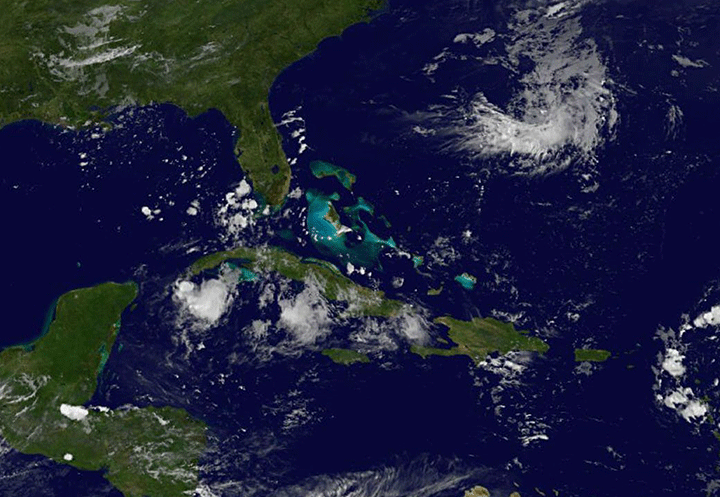A whistling sound can be heard from the depths of the Caribbean Sea, scientists have discovered.

The discovery was made after researchers from the University of Liverpool analyzed sea levels and took pressure readings from the sea from 1958 to 2013. They also used tidal gauges and satellite measurements of Earth’s gravity.
READ MORE: 2 new shark sanctuaries created in Caribbean
The phenomenon is created by something called a Rossby wave, which is the large-scale westward motion of a wave across the ocean. As this interacts with the ocean floor, it produces something the researchers have termed a “Rossby whistle.”
LISTEN: The Rossby whistle
The wave actually dies out at the western boundary of the sea and then reappears on the eastern side of the basin. Though some waves would survive this process, the Rossby waves get stronger, producing an oscillation. Due to this process, the water sloshes in and out of the basin every 120 days and is enough to change Earth’s gravity field, which is monitored by satellites.
READ MORE: Massive invasion of smelly seaweed a growing concern in Caribbean
“We can compare the ocean activity in the Caribbean Sea to that of a whistle. When you blow into a whistle, the jet of air becomes unstable and excites the resonant sound wave which fits into the whistle cavity. Because the whistle is open, the sound radiates out so you can hear it,” said Chris Hughes, lead author of the study and a professor at the University of Liverpool.
The same thing is happening with the Rossby wave. “Because the Caribbean Sea is partly open, this causes an exchange of water with the rest of the ocean which allows us to ‘hear’ the resonance using gravity measurements.”
This is creating a whistle that’s playing a note of A-flat. However, it’s inaudible to humans as it is several octaves below our hearing capability.
As this Rossby whistle occurs, it can change the sea level by as much as 10 cm along the coasts of Columbia and Venuzuela. A better understanding of this newly discovered phenomenon might help forecasters predict coastal flooding.
WATCH: Strange sounds heard in Terrace, B.C.


Comments